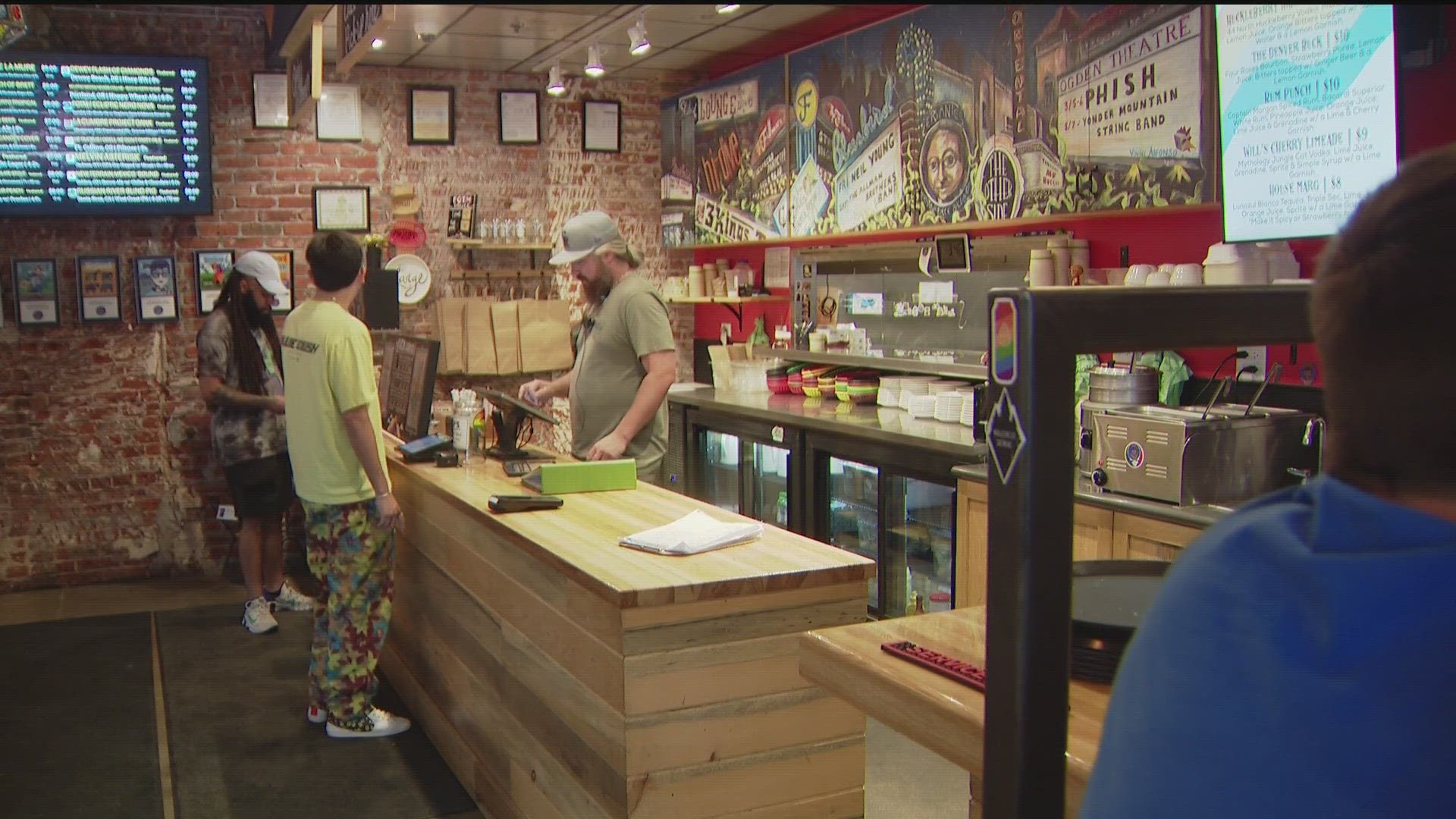DENVER — Denver's lowest-paid employees are about to get a raise -- but the people who employ them may have to increase prices to make up for it.
The city's minimum wage is set to increase again on Jan. 1 -- up a dollar to $18.29 per hour, the fifth increase since Denver started setting its own minimum wage in January 2020.
The city council tied the annual increases to inflation, which has hit consumers hard since the worst of the pandemic subsided. But an increase in wage expense means businesses could raise prices to keep up.
"That is just sort of the bottom line sometimes," said Andrea West, the owner of Fire on the Mountain, a Denver wing restaurant. "You have to raise prices when wages are going up."
West said 25% of her expenses are wage costs -- more than she spends to buy the food she sells. Her workers pool tips -- and all collect at least the $17.29 Denver minimum wage. West said she has become used to reexamining her menu to increase prices to make up for the annual increases in cost.
"It's just part of the changing playing field of the business and the industry that we're in," she said. West said she supports the wage increases; they allow her employees to continue to live in the city where they work.
"I think a part of me as a business owner needing to support them as people is supporting the minimum wage increase, it's just that simple to me," she said.
But it's still a balancing act -- for her and for the city's economy.
Kishore Kulkarni, MSU Denver professor of economics, said increasing wages too fast can lead to a wage-price spiral, a macroeconomic theory where wages drive up inflation, which then drives up wages, creating increased price inflation and, potentially, higher unemployment.
He said tying Denver's annual increases to the consumer price index, a measure of inflation, should help manage the risk of a spiral -- but the city's hike from a $12 per hour minimum wage in 2019 to $18.24 in 2024 is a big increase in a short amount of time.
However a study from the Colorado Department of Labor and Employment said those fears have not come to pass since Denver started raising its minimum wage in 2020.
Instead it said Denver's unemployment, sales tax revenue and earnings improved compared to other parts of the state that did not increase the minimum wage, although Denver was hit harder in the height of the COVID-19 pandemic.
At Fire on the Mountain, West said she can't run the restaurant with fewer workers -- and short of replacing them with robots -- can't change how much she needs to pay them.
"Obviously we're trying not to dramatically increase prices across the board and gouge everybody, we still want to be a family-friendly affordable place that you can take your family out to eat, but you have to make it up somewhere," she said.
That may mean a sticker shock on the next basket of wings and beer, but West said it's the price her workers -- and all workers -- deserve.
"It’s going to cost a little bit more to provide that experience to support the people that work here," she said. "But it’s important to me to invest in them as people. I don’t want this revolving door of people who don’t care about working here. I want them to deeply care about working here and I think paying them commensurately is part of that."
SUGGESTED VIDEOS: Latest from 9NEWS

